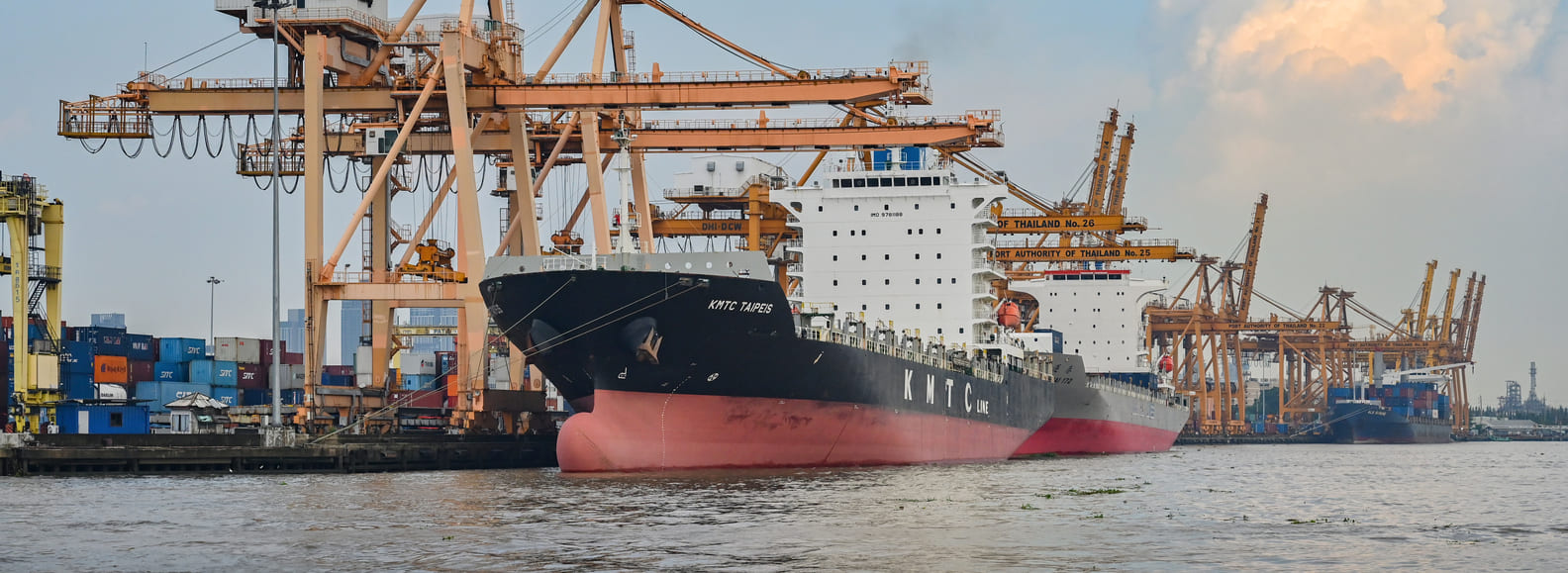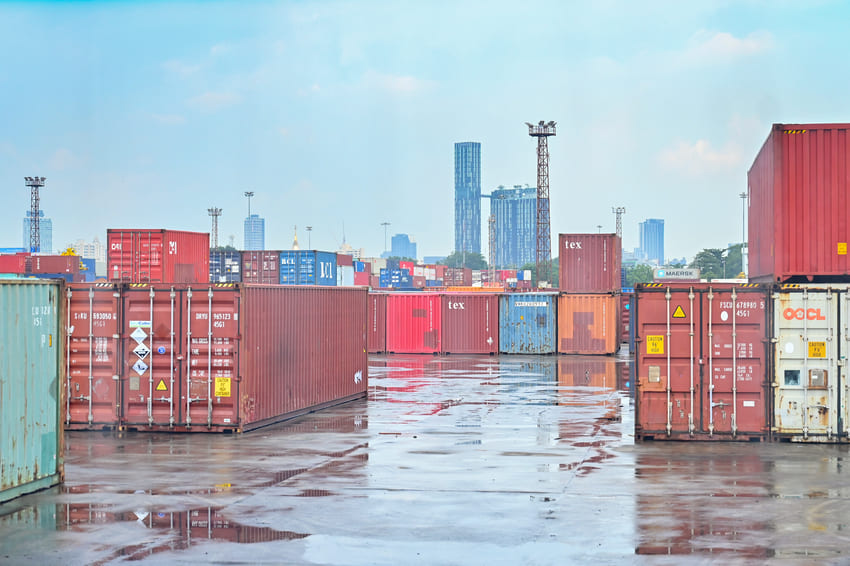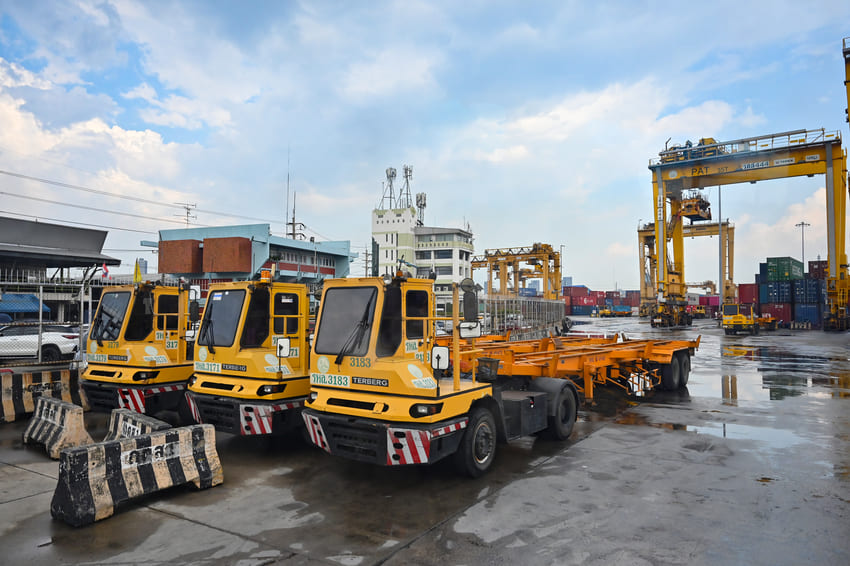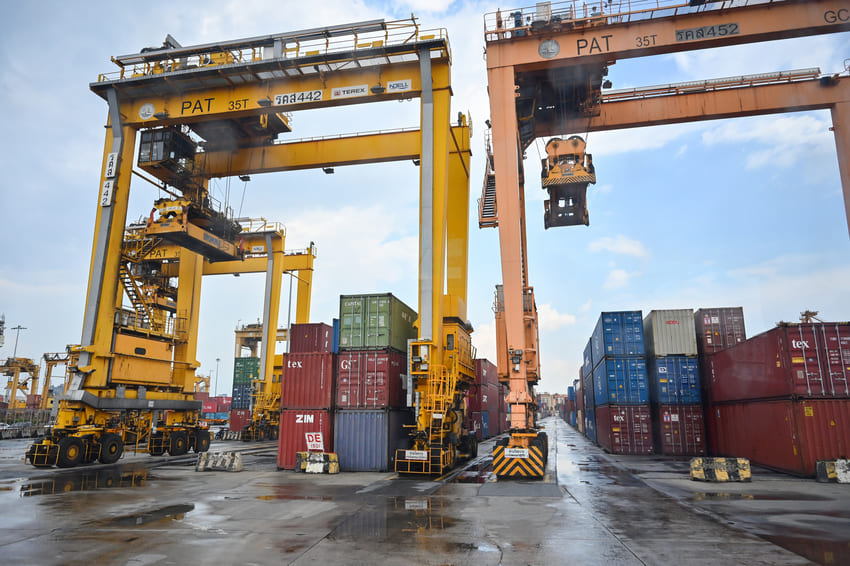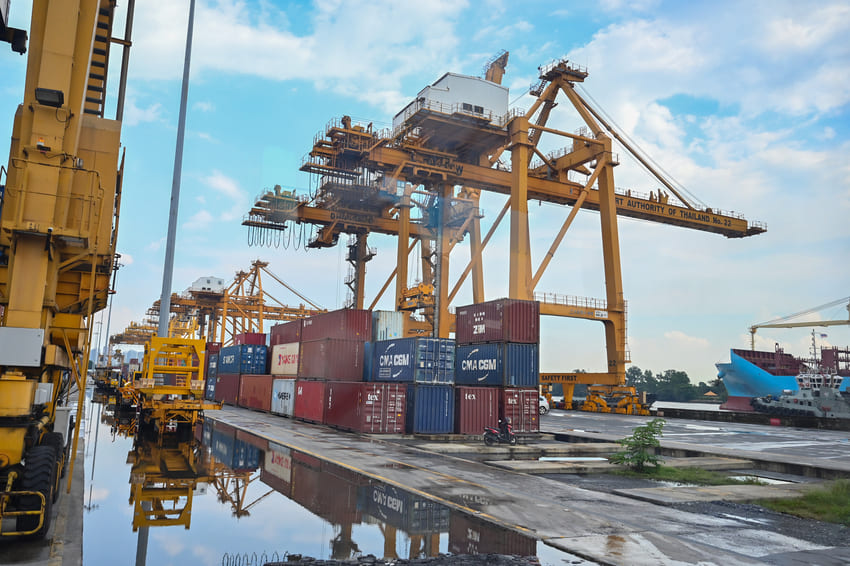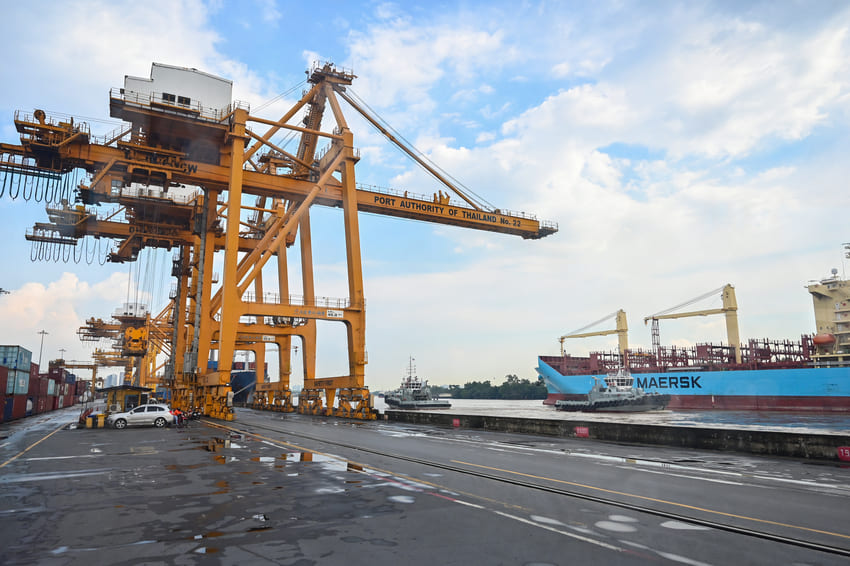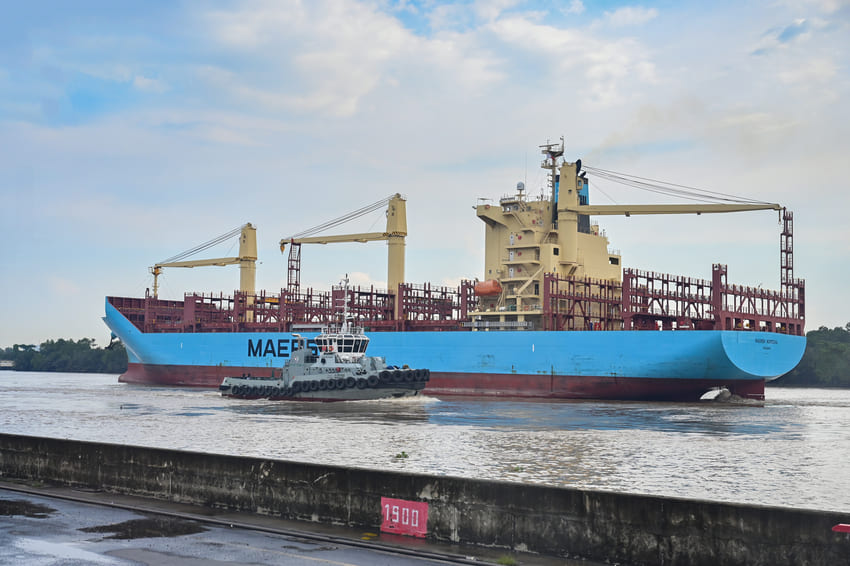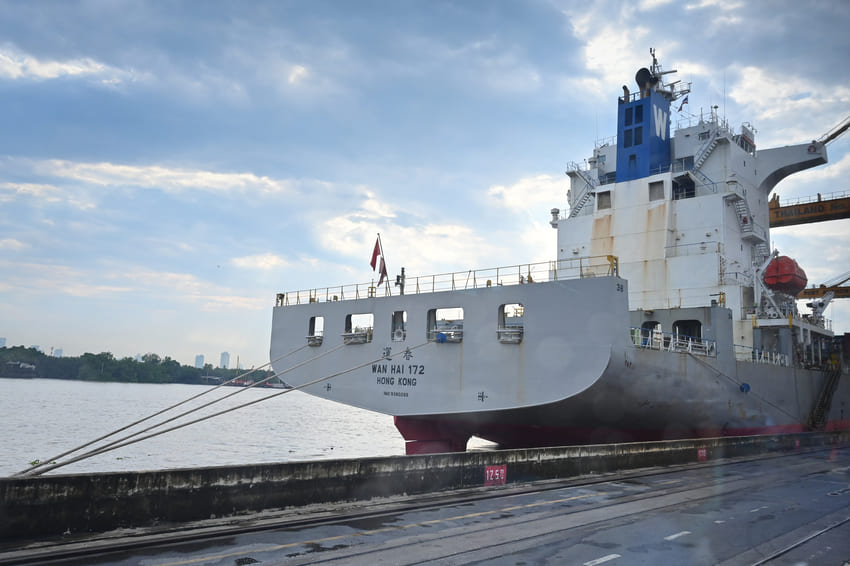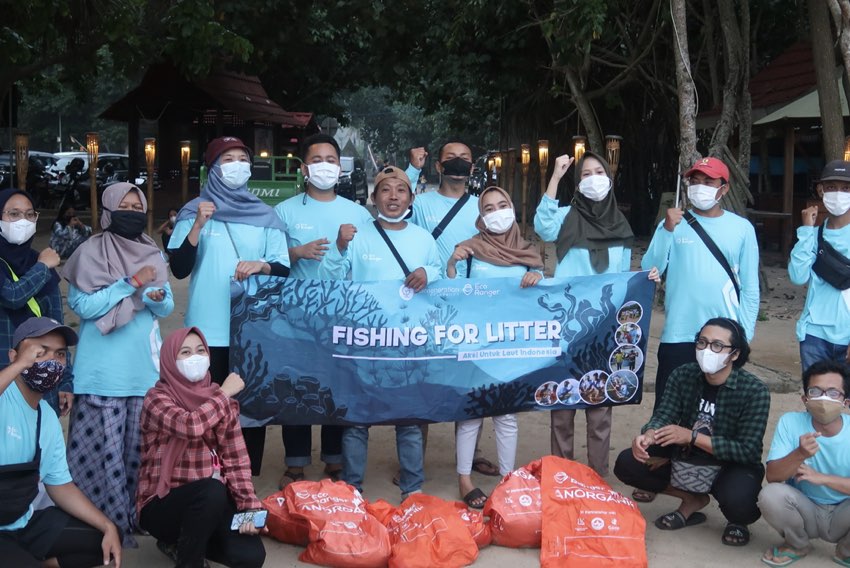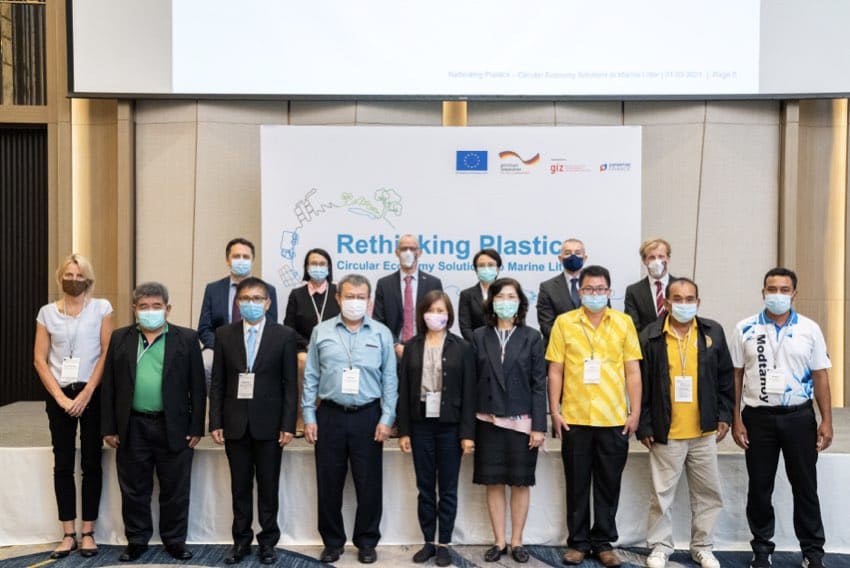Ship Waste Management 2.0
Illegal discharge from shipping and other maritime activities pollutes the marine environment. But it’s not only marine animals and plants that suffer – ultimately, people also feel the effects.
While not all marine pollution is caused by the maritime industry, a significant amount comes from short and long haul shipping. Ships generate different kinds of waste on their way to their destinations – from oils and plastic packaging to sewage and hazardous material. To make sure this isn’t illegally dumped into the sea, crews need efficient and reliable waste management systems and facilities in ports. This pilot project assessed Bangkok Port’s waste operations and developed an online platform for better ship waste management, including mandatory notifications, as well as recommendations for financial incentives.
“It is essential that ships and fishing vessels are able to deliver their waste and cargo residues to port reception facilities instead of dumping them illegally into the sea, where they affect the marine environment. Improved waste management regulations and services in ports, as well as information and training of staff and ships can make a difference in reducing marine litter."
Mr. Paolo Zingale from the Delegation of the European Union to Thailand
WHAT HAVE WE ACHIEVED IN 18 MONTHS?
1. Updating the ship waste management manual
We analysed the existing Ship Waste Management Manual at Bangkok Port and updated it to comprehensively describe all aspects of the waste handling and collection system for vessels calling at the port, including responsibilities, key contacts and inspections. This ensures the transparency of waste management processes and enables a common understanding among port authorities, ship crews, agents and waste contractors. The manual is now in use and available in both Thai and English.
2. Online waste notification and management system
We developed an online system for collecting waste information from ships before arrival. The system is integrated into the Port Authority of Thailand’s existing e-Port platform. Ships can notify reception facilities of the type and volume of waste they want to discharge via computer, tablet or mobile device. The port authority then prepares for the collection of the waste. This makes waste management transparent, and saves time and costs for everyone involved. The ships receive an automated online certificate as proof of their waste disposal, and the system saves the data for decades to come. To ensure the system runs efficiently, we trained Bangkok Port staff, shipping agents and other relevant actors. Other ports in Thailand are also interested in using the online system. These include Laem Chabang Port, the biggest container terminal in the country.
3. Cost recovery system
A Cost Recovery System ensures that ships pay ports for waste-related services. Ports have different payment options: they can charge ships for the specific waste they dispose of or apply a fixed fee. Working with the Thailand Development Research Institute, we analysed three cost recovery designs for Bangkok Port – direct fees, indirect fees and hybrid systems. Based on their relative advantages, limitations and economic impacts, we developed and submitted recommendations for an appropriate cost recovery system for Bangkok Port.
“Adopting the information technology for ship waste notification lets users receive services quickly and helps collecting information of the amount of ship waste each year. It also reduces illegal ship waste dumping into the ocean in the Port Authority of Thailand area.”
Mr. Thamsin Sribangpleenoi, Deputy Managing Director, Bangkok Port
WHAT HAVE WE LEARNED FROM OUR PILOT PROJECT?
- Close relationships and good communication with all actors is vital in ensuring all parties understand each other and work according to the policies agreed and towards the same goals. This includes increasing the recycling of waste collected from ships.
- The implementation of the online waste notification system in Bangkok Port will make a particular contribution to the digitalisation of port procedures and make the port greener and more competitive in the future.
Implemented by: The Energy Research Institute at Chulalongkorn University
Documents:

